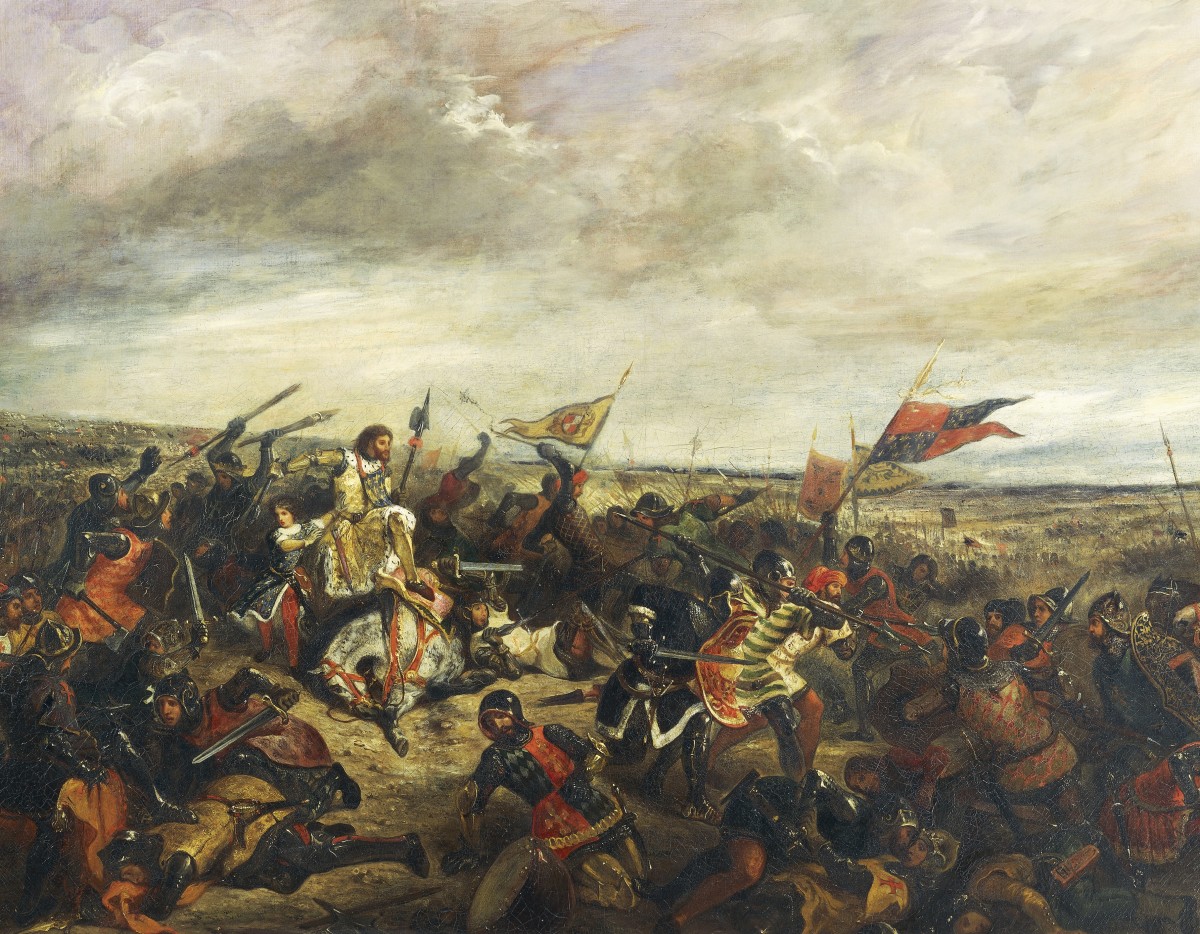The nominal cause of the war was a dispute over the succession to the French throne. For more than three hundred years son had followed father as king of France. This remarkable succession ended with the three sons of Philip the Fair, none of whom fathered a son who survived infancy. The crown then passed to Philip of Valois, Philip VI (1328-1350), a nephew of Philip the Fair. But the king of England, Edward III (r. 1327-1377), claimed that as the nephew of the last Capetian king he had a better right to succeed than Philip of Valois.
To settle the question, French lawyers went back to the Frankish Salic law of the sixth century, which said that a woman could not inherit land. Although the Salic law had not been applied in France for centuries, the lawyers now interpreted it to mean that a woman could not transmit the inheritance to the kingdom. This legal quibble was to serve Edward III as the pretext for beginning the Hundred Years’ War. English diplomats insisted that Edward’s claim was legitimate, while the French saw him as a rebellious vassal. Rivals for the rich commerce of the Low Countries, the English and French were looking for an excuse for war.
England’s continued possession of the rich duchy of Aquitaine, with its lucrative vineyards and its prosperous wine- shipping port of Bordeaux, was a glaring exception to an increasingly unified France. As sn7erains over Aquitaine, the kings of France encroached upon the feudal rights of the kings of England. The English, for their part, wished to keep what they had and to regain Normandy and the other territories they had lost to Philip Augustus.
The most pressing issue arose farther north, in Flanders. This small but wealthy area, which today straddles the frontier between Belgium and France, was ruled by the count of Flanders, a vassal of the king of France. The thriving Flemish cloth manufacturers bought most of their wool from England and sold much of their finished cloth there; the English Crown collected taxes both on the exported wool and on the imported woolens.
Inside Flanders the artisans and tradespeople of the towns were in almost constant conflict with the rich commercial ruling class. The rich sought the backing of the count of Flanders, and he in turn sought that of his overlord, the king of France; the workers got the help of the English, who feared the disruption of their lucrative trade. Warlike incidents multiplied during the early fourteenth century, culminating in a victorious invasion of Flanders by French armies. Edward III thereupon allied himself with a Flemish merchant of Ghent, Jacob van Artevelde, who expelled both the ruling Flemish oligarchy and the French and organized his own government of Flanders. It was in response to pressure from these Flemish allies that Edward III put forth his claim as king of France and started a war in 1337.
The first major operation of the war was an English naval victory at Sluys in 1340, When their Flemish ally, van Artevelde, was killed in 1345, the English invaded northern France and gained a great victory at Crecy in 1346. Despite inferior numbers, the English profited by incompetent French generalship and by relying upon large numbers of infantrymen armed with the longbow.
From higher ground English archers poured arrows down on a confused crowd of mounted French knights and mercenaries armed with the crossbow, a cumbersome weapon rather like a giant slingshot. Next the English took Calais. When open warfare was resumed after the Black Death, the English not only defeated the French again, at Poitiers in western France (1356), but also captured the French king, John II (r. 1350-1364). John’s teenage son, Charles, the future King Charles V, the Wise, became regent for his father in France.
In 1360 the Hundred Years’ War paused when Edward III virtually renounced his claim to the French crown by treaty in exchange for all southwestern France and lands bordering the Channel near Calais. When the war was resumed in 1369, the French made impressive gains under Charles the Wise and his capable advisers. By his death in 1380 they had driven the English from French soil except for a string of seaports, including Bordeaux and Calais. The French fleet now could sail freely in the Channel and raid the English coasts.
The Valois kings were far less effective rulers than the Capetians had been. The English won the main battles and gained much French territory by treaty. France was racked by the Black Death and swept by social crisis and civil war. Yet the English were overextended, and the French ultimately drove them out and completed the unification of their country under a strong national monarchy. Necessity obliged the Valois kings to develop a standing army, finance it by direct taxation, and enlist the support of the middle classes, on whose assistance the whole accomplishment depended.

